ST. ELMO’S FIRE. Good but The Breakfast Club it ain’t
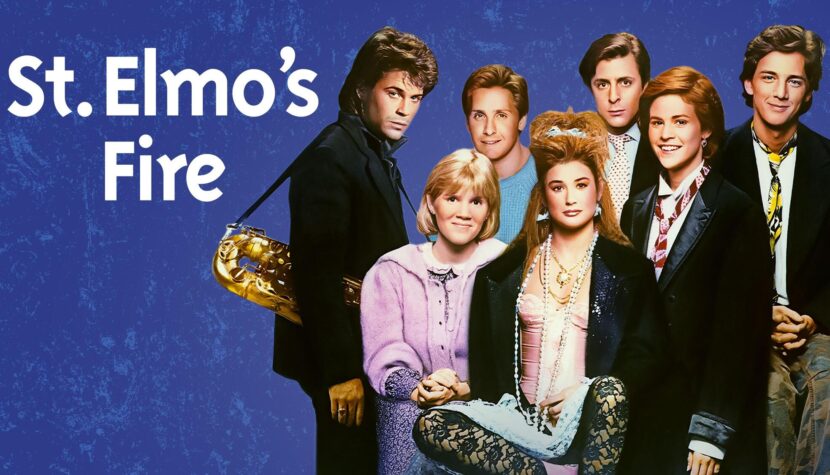
Independence, work, our own apartment – these are just some of the things we dream about. Unfortunately, the problems don’t disappear.
They evolve and take on different dimensions, and we, just like a few years earlier, face them, hoping that just like in high school, we’ll somehow manage to deal with them with our heads held high. There are as many ways to deal with life’s adversities as there are people. Some will do it by diving into their careers, others by rebelling against the system, and still others by finding hobbies and passions that can detach them from everyday life. Everyone must find their own specific way to cope with this strange transition into adulthood. St. Elmo’s Fire in a nutshell.

Joel Schumacher‘s film is the story of seven college friends who stand at the threshold of adult life after finishing school. The girl from a good home, the rebel and playboy, the couple seen as perfect, the guy obsessed with an older woman, the go-getter banker, and the introverted writer. They are all bound by friendship and a shared history, but each of them has a different view of the present and the future.
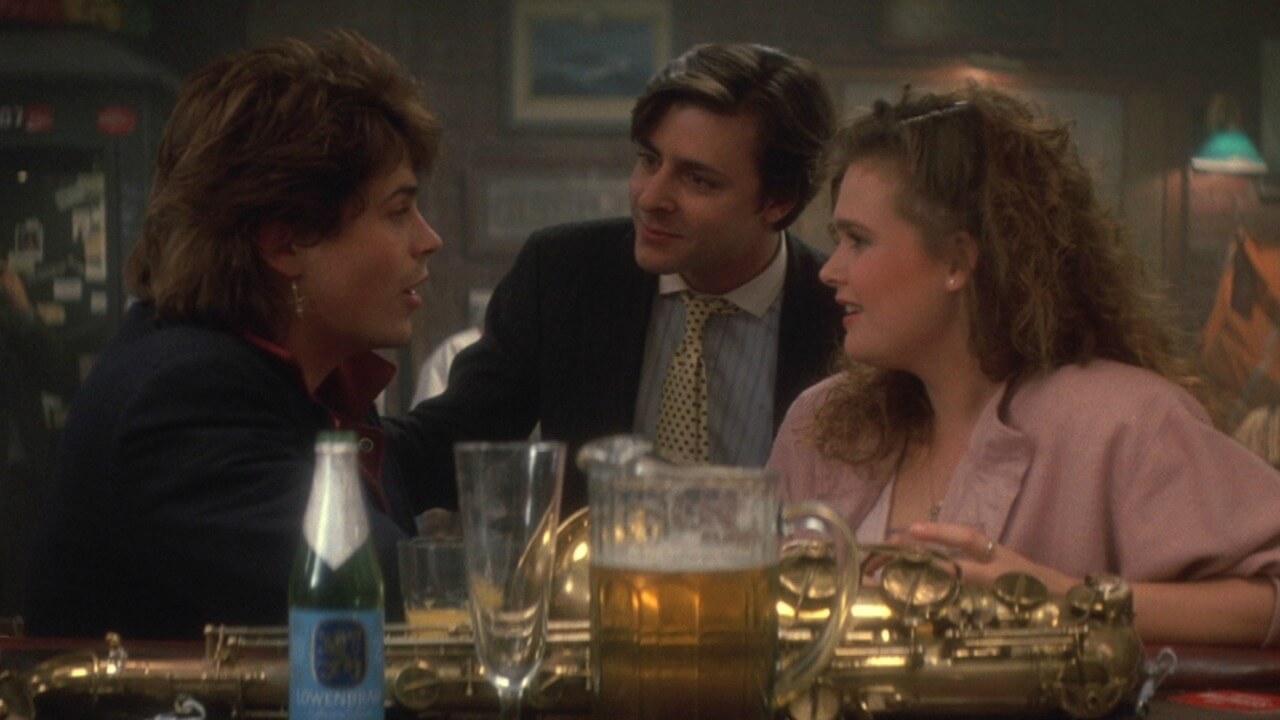
Sounds familiar, doesn’t it? It’s hard to talk about St. Elmo’s Fire without referring to and comparing it to The Breakfast Club. Both were released in the same year, both deal with a similar problem, and finally, both feature some of the same actors. However, the difference in the level of the films can be noticed within the first few minutes of watching. In John Hughes’ film, we have a plot and a causal chain, and the characters are really well written. We immediately find something in common with them, a certain thread of understanding. Watching them, it’s easy to recall ourselves from high school times. Involuntarily, we go back to the time when we were 16; back to the time of searching for our own identity; to rebellion, which accompanied that search.
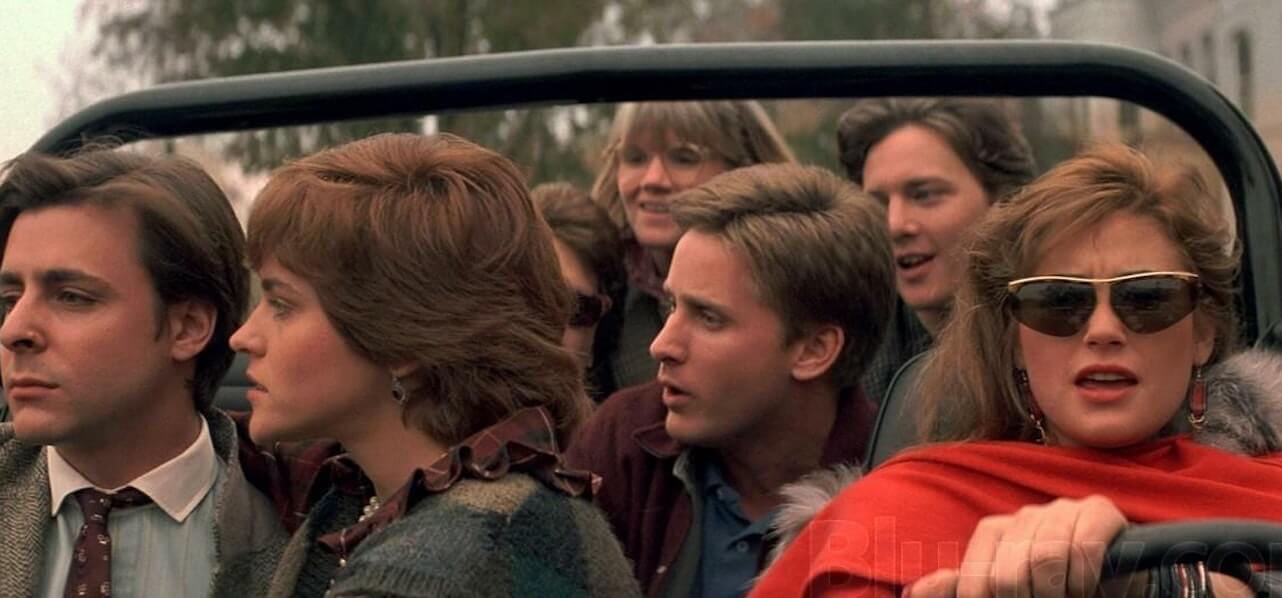
We won’t experience that with Joel Schumacher. The director of Lost Boys has shallow characters. He had wonderful actors at his disposal: the best of the young generation, yet he gave them characters straight out of a soap opera to play. They flail senselessly on the screen, uttering pseudo-philosophical phrases from time to time and making irrational decisions. They lack personality or deeper characterization, and every scene they’re in becomes the climax of something we never get to see. You can feel deeply lost, and the story presented on screen takes the form of indigestible mishmash. The situations they are involved in are simply exaggerated. I suppose everyone knows someone who was obsessed with someone else, couldn’t find a job, or even flirted with their boss. These aren’t events from the front pages of newspapers but life itself, yet it is presented to us exceptionally unbelievably.
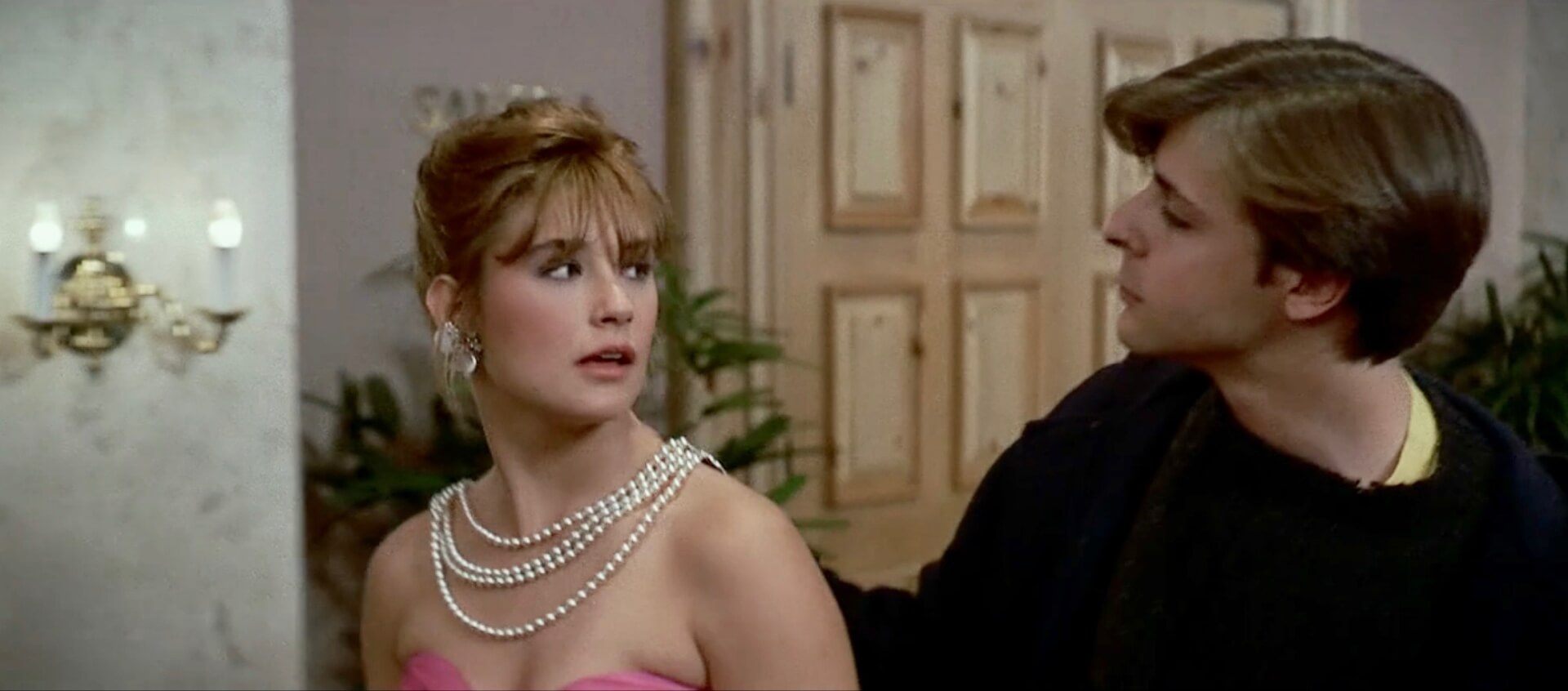
Judd Nelson’s character cheats on his girlfriend, but we never see him doing anything wrong. They live together, seem happy, even plan to get married, until suddenly, it turns out he’s cheating all the time. How are we supposed to believe he sleeps with every woman he meets when nothing indicates it? Another example is Estevez’s character, who is obsessed with a girl a few years older than him. The guy wanders around in the rain and stalks her, sneaks into a closed party with her, and finally throws a party for her. When she doesn’t come, he goes after her to a mountain cabin. Where’s any logic in that? Why does this woman turn him on so much? He only saw her for a year in high school, yet he’s totally crazy about her. There are plenty of such situations in St. Elmo’s Fire. The director and screenwriter blow seemingly simple matters into incredible proportions, making them difficult to accept and exceptionally stretched. He lacks sensitivity and subtlety.
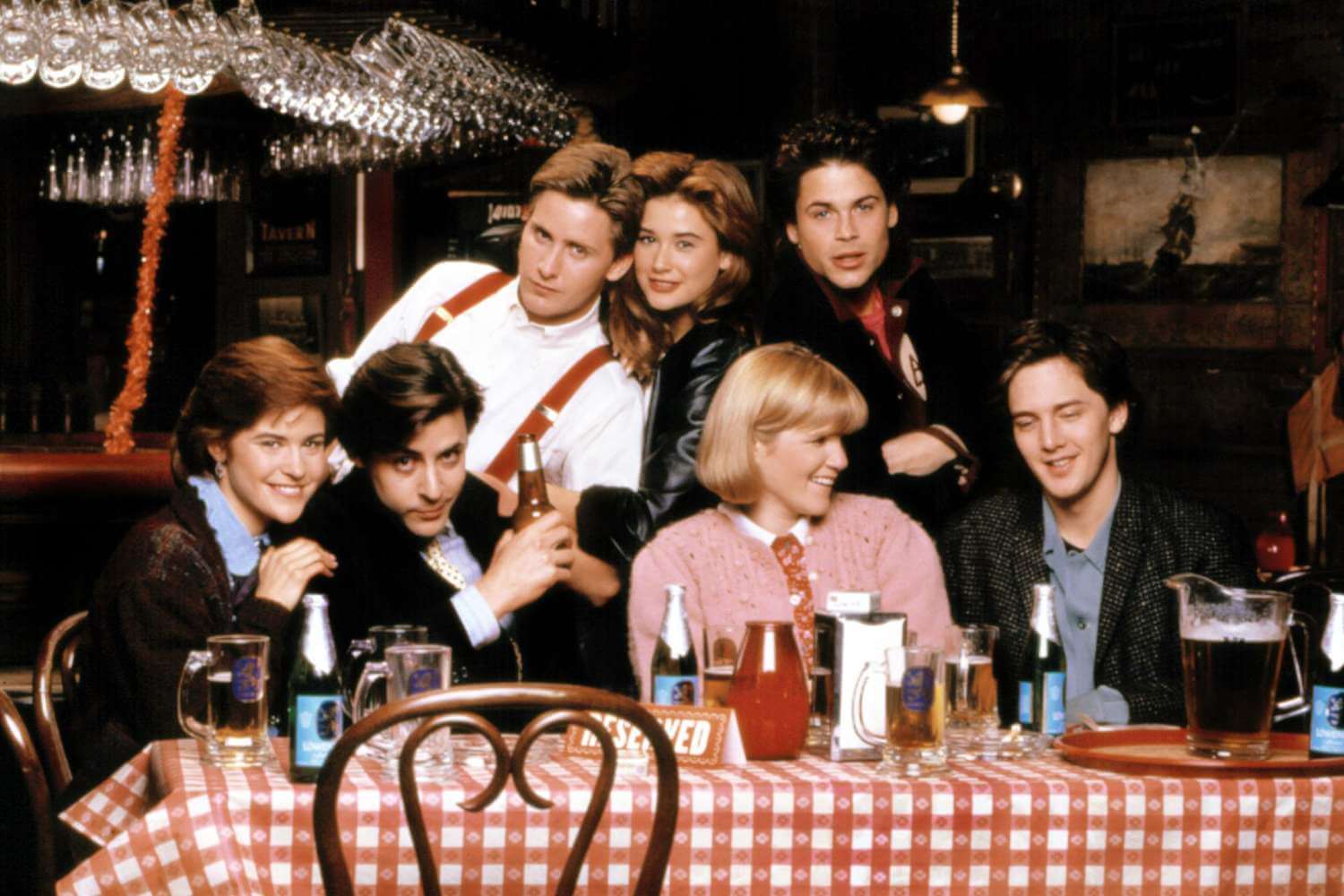
The problems of entering adulthood offered ample scope for exploration. The moment when we have to answer the question “what now?” is a kind of no-brainer. It can be presented in many ways without resorting to childishness and ridiculousness. However, the condition for success is an idea of how to achieve this and, consequently, drawing specific conclusions. After watching the movie, I felt like I had only seen a few weeks in the lives of a not very fun group, trying to show how great they are by promoting themselves at the local bar, throwing parties, getting drunk, or having sex. There’s zero reflection or any point. At some point, the movie just ends, and all the drama that unfolded in the last few minutes seems to lose any meaning. Of course, we get something like a summary, but what’s the point when the relationships of these people look the same as at the beginning of the movie? The events they participated in should leave some mark on their psyche, make them perceive certain things differently. Instead, they go looking for another bar, as if nothing had happened.

It’s a pity, especially for the actors, because it’s evident that they’re giving their all. Unfortunately, the poorly written script effectively hinders them. Judd Nelson, Emilio Estevez, Rob Lowe, Ally Sheedy, or Demi Moore can act and do their best, but all of it gets lost in the muddle of illogic. Knowing their filmographies, I’ll venture to say that for some of them, this was the weakest film they’ve been involved in.
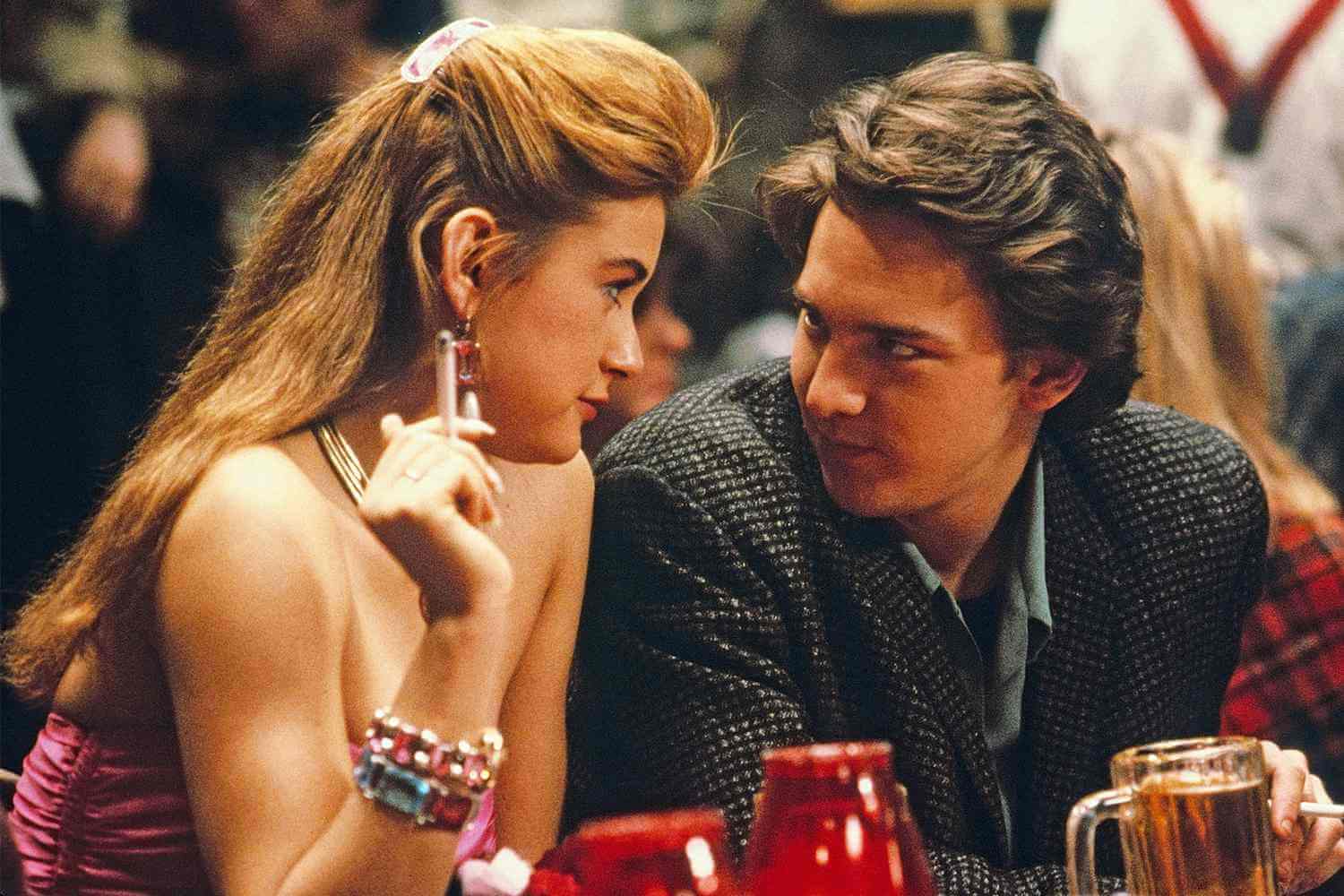
After watching St. Elmo’s Fire, I searched for information about this production for a long time. It turned out to be a huge box office success and has since gained a cult status, even though critics didn’t spare it. Siskel and Ebert even considered it one of the worst movies to premiere in 1985! I totally understand them. This movie is a collage of illogicalities. It’s full of scenes that have nothing in common. It lacks the lightness of The Breakfast Club and the conclusions we could draw. There’s too much banality in it. It’s painless to watch, but mainly thanks to the actors who do their best to give their characters some character. The soundtrack is good, led by John Parr’s song St. Elmo’s Fire, which became a hit for a long time and still echoes in clubs in various forms.
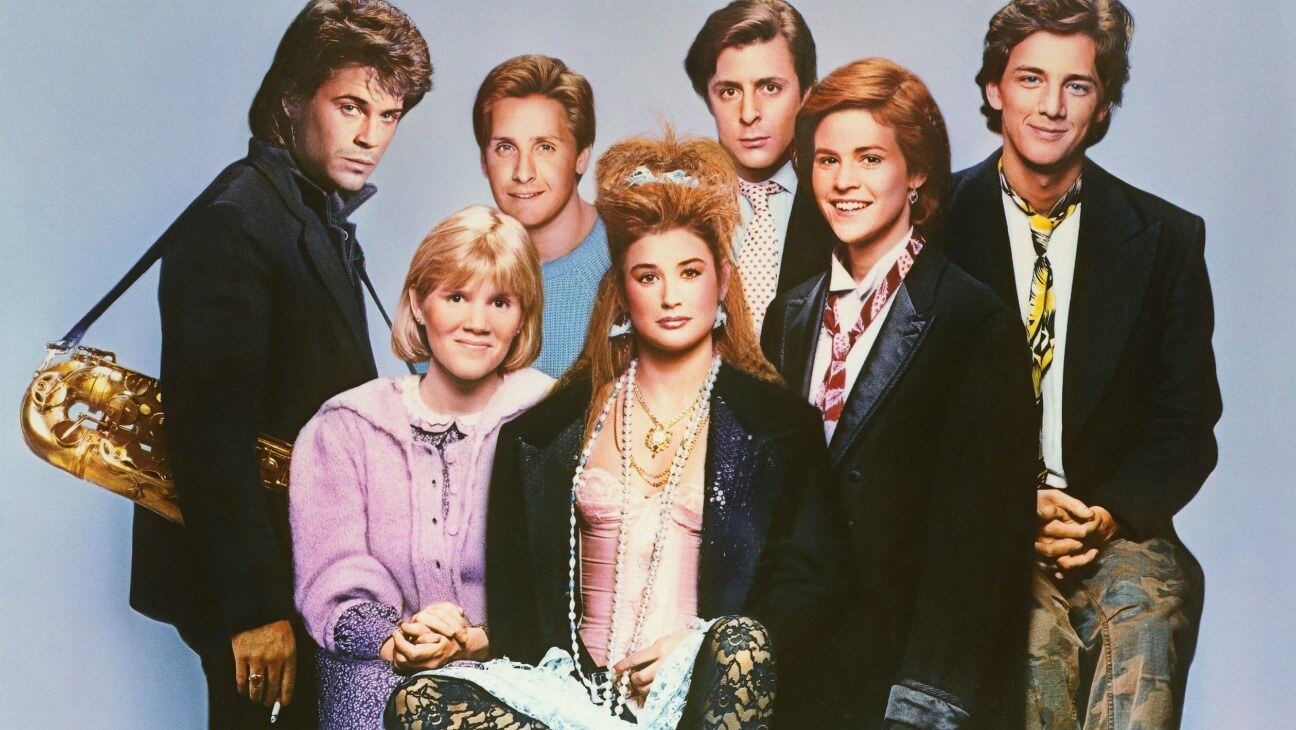
If you want to go back to the 80s for a moment and watch something light, without getting too involved in the story, St. Elmo’s Fire works pretty well here. However, if you expect a work on the level of a Hughes film, you may be sorely disappointed.
Words by Szymon Pajdak

